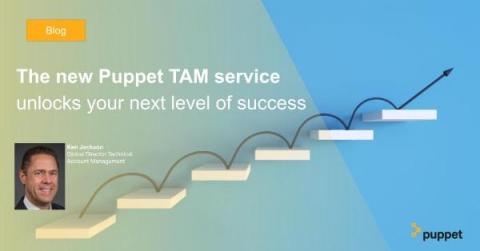Operations | Monitoring | ITSM | DevOps | Cloud
Automation
Serving Files with Puppet Part 3 - Summary
Investigating issues with performance in Puppet Enterprise, Part 1
Automatically Add IP Addresses to a Penalty Box in Cloudflare with Torq
Good security may come from strong defenses, but strong security comes from a good offense. This is especially true for network security, where minutes can make the difference between a breach and a near miss. For example, if an unknown IP address triggers an alert for suspicious or abusive behavior, the faster you can isolate and block that address, the less likely it is that the person or entity at the other end can do damage.
Investigating issues with performance in Puppet Enterprise, Part 2 - Agent Logging
Resolve Actions and Espressive Barista
6 Things You Should Know Before Incorporating Data Into Your Business Plan
An Open Letter from the CEO of Puppet: Puppet + Perforce
When I started at Puppet three years ago, I saw a company with a tremendous customer base, an active open source community, an incredible reputation, products that solved some of the hardest problems in the operations space, and a passionate team that had deep values and was purpose-driven, both of which are at my core as a leader.
Top 5 Reasons to Use Automation to Deliver Self-Service IT Support
IT service desk technology has made tremendous strides over the past decade. Despite this fact, however, a recent survey by Gatepoint Research revealed that 74% of today’s on-site workforce still relies on phone calls to get the support they need. Remarkably, this number is even higher (80%) amongst remote workers. This is placing a heavy burden on support teams that are already stretched too thin.
The new Puppet TAM service unlocks your next level of success
It can be challenging for even the most experienced IT organizations to embrace the latest DevOps automation tools and then ensure they are implemented in the most optimal way across a hybrid IT estate. Infrastructure teams are faced with increasing deployment complexities, budget and staffing constraints, competing priorities, and the challenge of supporting expanding development teams, impacting their organizational goals and KPIs.











